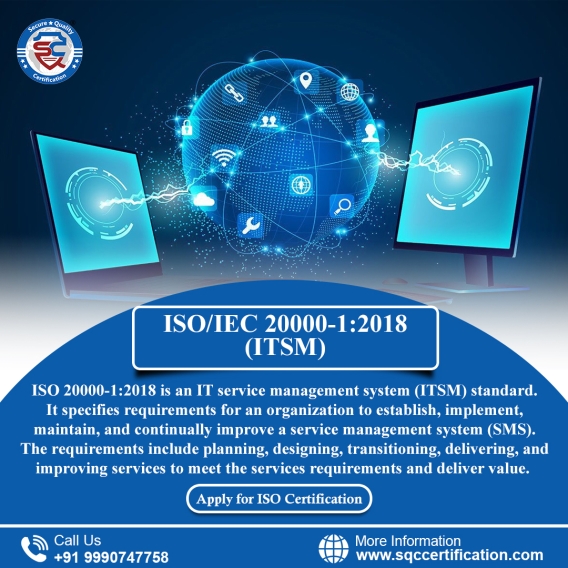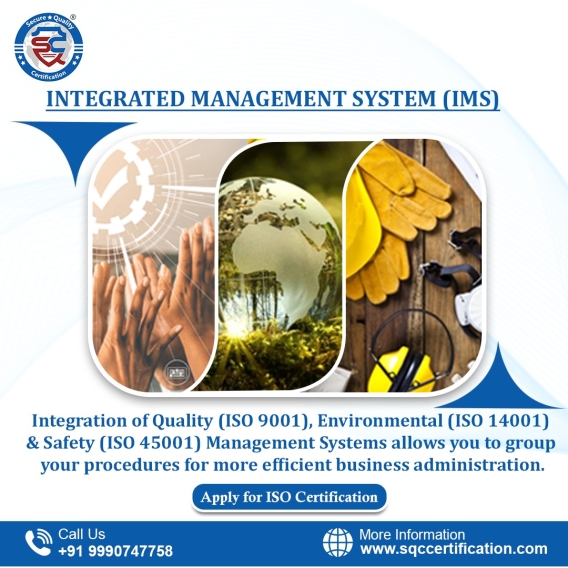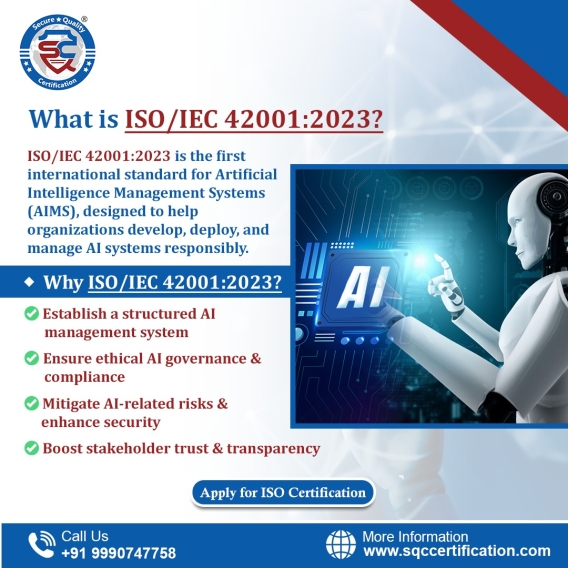499 results found | searching for "framework"
-
ISO/IEC 20000-1 is an international standard for IT Service Management (ITSM). It provides a framework for organizations to effectively deliver IT services that meet business and customer requirements. The standard ensures that IT services are reliable, consistent, and continually improved. Improved Service Quality Enhanced Customer Confidence Continuous Improvement Competitive Advantage Learn more: https://sqccertification.com/iso-iec-20000-1-certification/ Visit Site: https://sqccertification.com/ Call Us: +91-9990747758 Location: https://g.co/kgs/aJsxrjf #ISO #ISOIndia #ISOStandard #Sqccertification #ISO/IEC 20000-1
-
Explore Accelerative AI Framework to deploy AI faster, scale enterprise solutions across industries, and achieve measurable business results. - https://blogs.emorphis.com/accelerative-ai-framework/
-
Learn Laravel easily with the Laravel Tutorial from TpointTech. This beginner-friendly guide explains features, benefits, and step-by-step basics of the popular PHP framework to help you create secure, dynamic, and fast web applications with confidence and simple instructions. Visit: https://www.tpointtech.com/laravel
-
Seamless Integration and Scalability with Emorphis’ Care Management Framework https://medium.com/@Larisa10/seamless-integration-and-scalability-with-emorphis-care-management-framework-d7f8c385cffd Emorphis’ Care Management Framework is a modular, API-driven solution designed to accelerate the development and deployment of care management applications. Built with interoperability, customization, and scalability in mind, the framework enables healthcare providers to centralize patient data, automate workflows, and empower care teams with real-time, actionable insights.
-
Care Management Framework https://www.emorphis.com/care-management-software-framework/ Emorphis Care Management Software Framework is a cloud-based, flexible solution designed to help healthcare organizations deliver personalized, data-driven care. It offers AI-powered insights, EHR integration, remote patient monitoring, and automated billing for improved patient outcomes and operational efficiency.
-
IMS stands for Integrated Management System. It is a framework that combines different ISO standards, such as Quality (ISO 9001), Environment (ISO 14001), and Occupational Health & Safety (ISO 45001), into a single, unified system. Efficiency Improvement Better Compliance Improved Decision-Making Enhanced Customer Satisfaction Learn more: https://sqccertification.com/integrated-management-systems/ Visit Site: https://sqccertification.com/ Call Us: +91-9990747758 Location: https://g.co/kgs/aJsxrjf #ISO #ISOIndia #ISOStandard #Sqccertification #Integrated Management System
-
Want to know why Flutter stands out the most when compared to other cross-platform frameworks such as React Native or Ionic? Well, read our blog to know the top reasons and real-world use cases of the Flutter framework. https://qirolab.com/posts/top-reasons-global-brands-are-switching-to-flutter-1757584713 #FlutterAppDevelopment #MobileAppDevelopment #CrossPlatform #TechForBusiness #AppInnovation
-
ISO/IEC 42001 is the first international standard for Artificial Intelligence Management Systems (AIMS). It provides a framework for organizations to ensure that AI is developed and used in a safe, ethical, transparent, and accountable manner. Builds trust in AI systems. Ensures ethical and transparent use. Manages risks like bias and misuse. Learn more: https://sqccertification.com/iso-42001-certification-requirement/ Visit Site: https://sqccertification.com/ Call Us: +91-9990747758 Location: https://g.co/kgs/aJsxrjf #iso #isoindia #isostandard #sqccertification #iso/iec 42001 #artificial intelligence
-
Why Healthcare Needs an Accelerative AI Framework (And Not Just AI Tools) https://medium.com/@Larisa10/why-healthcare-needs-an-accelerative-ai-framework-and-not-just-ai-tools-5a54a3df8efb The healthcare industry is undergoing a digital revolution, with Artificial Intelligence (AI) at the forefront. From predictive analytics to medical imaging and chatbots, AI tools are increasingly being adopted by hospitals, providers, and payers. Yet, despite the hype, many organizations find themselves struggling with fragmented implementations.
-
Accelerative AI Framework, How Enterprises Can Go from Idea to MVP in Just 4 Weeks https://blogs.emorphis.com/accelerative-ai-framework/ Artificial Intelligence (AI) is no longer a futuristic concept; it has become the driving force behind digital transformation across industries. From healthcare and fintech to media and automotive, enterprises are racing to adopt an AI framework or AI solutions that deliver automation, predictive insights, and personalized customer experiences.





